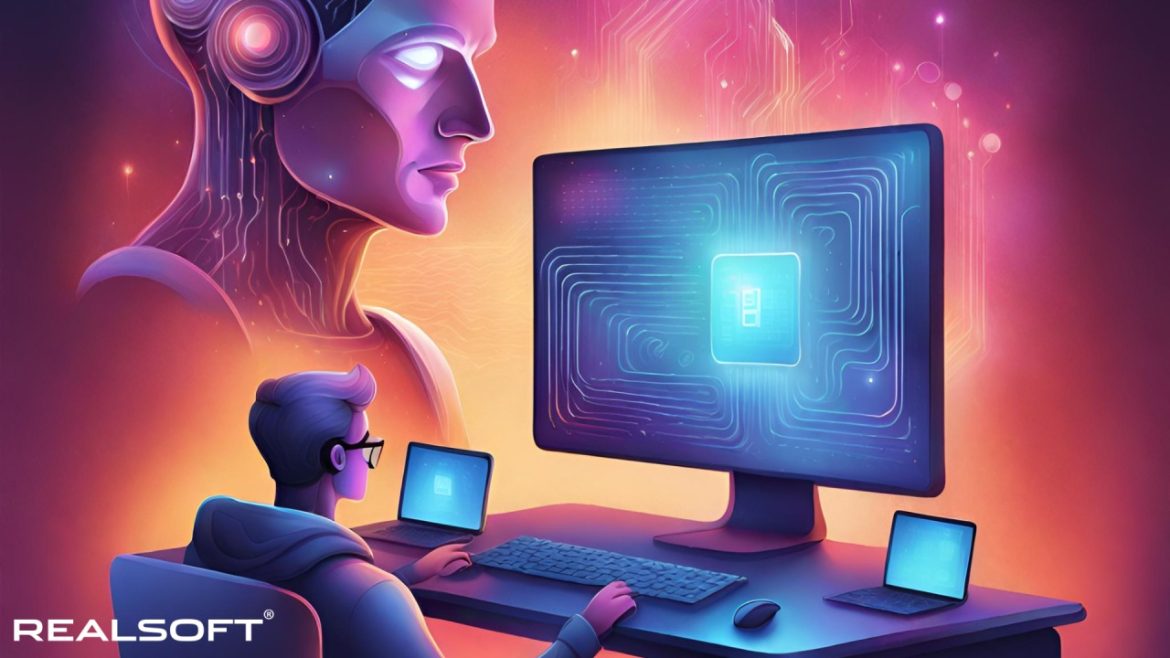In recent years, the world of game development has been undergoing a profound transformation, thanks to the rapid rise of Artificial Intelligence (AI). As AI technologies continue to advance, game developers are harnessing its power to create more immersive, challenging, and dynamic gaming experiences. This article explores the impact of AI on game development, from character behavior and storytelling to procedural content generation and player personalization.
AI-Powered Character Behavior
Realistic Non-Player Characters (NPCs)
One of the most noticeable ways AI has revolutionized game development is in the behavior of non-player characters (NPCs). AI-driven NPCs can now exhibit more lifelike actions, adapting to player actions and making the game world feel more vibrant and responsive. Whether it’s enemies that learn from the player’s tactics or friendly NPCs with believable personalities, AI has elevated character interactions to new heights.
Dynamic Enemy AI
AI has made enemy encounters in games more dynamic and challenging. Enemies can now adapt to the player’s strategies, changing their tactics in real-time. This creates a more engaging and unpredictable gameplay experience, forcing players to think on their feet and adapt to evolving situations.
AI and Storytelling
Procedural Storytelling
AI-driven procedural storytelling is transforming the way narratives unfold in games. Games like “The Elder Scrolls” series use AI algorithms to generate dynamic quests and storylines based on player choices and interactions. This allows for greater replayability and a more personalized narrative experience.
Natural Language Processing
AI is also being employed for natural language processing in dialogue systems. Games like “Red Dead Redemption 2” utilize AI to enable characters to respond contextually to player interactions, making in-game conversations feel more realistic and immersive.
Procedural Content Generation
Expansive Game Worlds
Procedural content generation, powered by AI, has enabled the creation of expansive game worlds with unprecedented scale. No Man’s Sky, for example, uses procedural algorithms to generate entire planets, complete with ecosystems and geography, offering players a virtually limitless universe to explore.
Randomly Generated Levels
In games like “Spelunky” and “Rogue Legacy,” AI-driven procedural generation creates randomized levels, ensuring that no two playthroughs are the same. This enhances replayability and keeps players engaged for longer periods.
Player Personalization
Adaptive Difficulty
AI-driven adaptive difficulty systems monitor player performance and adjust the game’s challenge level accordingly. This ensures that players of all skill levels can enjoy the game without becoming frustrated or bored.
Personalized Content Recommendations
AI algorithms are used to analyze player behavior and preferences, providing personalized recommendations for in-game content. This not only enhances the player’s experience but also increases player retention and engagement.
AI in Game Testing
Bug Detection
AI-powered testing tools can identify and report bugs more efficiently than manual testing. This accelerates the game development process, leading to quicker releases and improved game quality.
Playtesting
AI-driven playtesting can simulate thousands of player sessions, helping developers identify potential issues and areas for improvement. This iterative process results in a more polished and enjoyable final product.
Future Trends in AI Game Development
Enhanced Realism
As AI continues to advance, we can expect even greater realism in games. From more convincing facial animations to improved physics simulations, AI will contribute to creating more immersive virtual worlds.
AI-Generated Content
AI will play a more significant role in content creation, from generating art assets to composing music and even designing levels. This will save developers time and resources while allowing for more creativity.
AI-Driven Game Design
In the future, AI may take on a more active role in designing entire games. Game design AI could create unique gameplay mechanics and experiences, pushing the boundaries of what’s possible in interactive entertainment.
Conclusion
The rise of Artificial Intelligence in game development is reshaping the industry in profound ways. AI-powered character behavior, procedural content generation, adaptive difficulty systems, and personalized experiences are just the beginning. As AI technologies continue to evolve, we can anticipate even more exciting developments in game design and player experiences. Game developers who embrace AI will have the tools to create games that are not only more engaging but also more innovative and immersive than ever before. The future of game development is undeniably intertwined with the rise of Artificial Intelligence.

